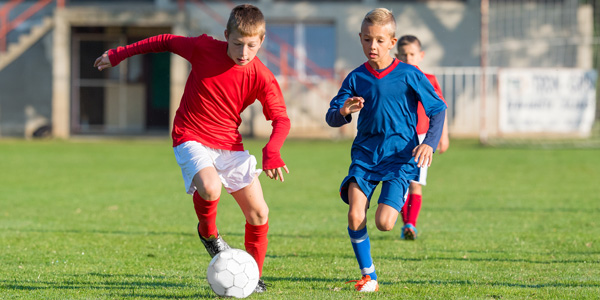Think of Mistakes as Learning Opportunities
There are numerous advantages to kids’ embracing a growth mindset in youth sports.
Kids who have a growth mindset tend to see mistakes as opportunities for growth. They rarely say, “I can’t do this.” They generally don’t feel “stuck” but instead feel as if they’re learning and growing.
Kids with a fixed mindset, on the other hand, tend to get stuck. They tell themselves, “I’ll never ever be able to do this.” They have negative attitudes about making mistakes, rather than seeing mistakes as learning opportunities.
In a recent interview with our Ultimate Sports Parent podcast, “Building Confidence in Young Athletes,” Michaela Renee Johnson, a licensed therapist, bestselling author and top iTunes podcaster (“But Why?”), provided tips for helping kids focus on growth.
First of all, she says, focus on experiences.
“Youth are asked at a young age, ‘What do you want to do?’ as if there’s only one option,” Johnson says. Instead, parents should encourage kids to be excited about their opportunities and all the things they can experience.
“When we start to shift our perspective to experiences we want to have in life instead of something tangible we need to obtain, then we set ourselves up for success,” she says.
It’s also important to help kids recognize when they’re in a fixed mindset. For example, they might tell themselves, “I’ll never ever be able to do that.”
“When we get into that mindset, it’s a self-fulfilling prophecy,” she says. Help kids shift their mindset, and tell themselves, “Today wasn’t the best day, but I learned a lot.”
Too many compliments and positive reinforcement can make kids feel stuck, she says. If parents make broad, sweeping compliments, kids may feel as though they don’t need to improve. She suggests that parents give very specific positive feedback. For example, pick out something the child did during a game that was interesting or unique and comment about that, she says.
“When my son was doing art, I’d say, ‘I really like this yellow line here.”
In addition, if kids are feeling stuck because they’re afraid of re-injuring themselves after an injury, help them take baby steps, says Johnson.
“Every time you have an experience that doesn’t result in the trauma you experienced (from an injury), your brain rewires itself, the muscle memory comes back and fear starts to subside,” she says.
Listen to the Ultimate Sports Podcast Below:
Related Articles on Kids’ Mental Game:
- Motivate Kids with Growth Mindset, Not Fear
- The Benefits of a Growth Mindset in Youth Sports
- Teaching Athletes to Feel The Pain of Failure with “Growth Mindsets” [Podcast]
*Subscribe to The Sports Psychology Podcast on iTunes
*Subscribe to The Sports Psychology Podcast on Spotify
Improve Your Mental Game From Anywhere In The World

We’re certain that, as a parent, you want to help your child develop confidence and discipline in sports and life. And as a sports parent, you’d love for your children to reach their potential in sports. But encouraging your child to strive for greatness without pressuring them can be a challenge.
You can get expert mental coaching with us from anywhere. Meet with us via Zoom, Skype, FaceTime or phone call. With today’s video technology, we are able to connect with athletes and coaches all over the globe.
Call Us Today to Schedule Your Free 15-Minute Session.
Find Out How Your Athlete Can Benefit From One-on-One Mental Coaching!

